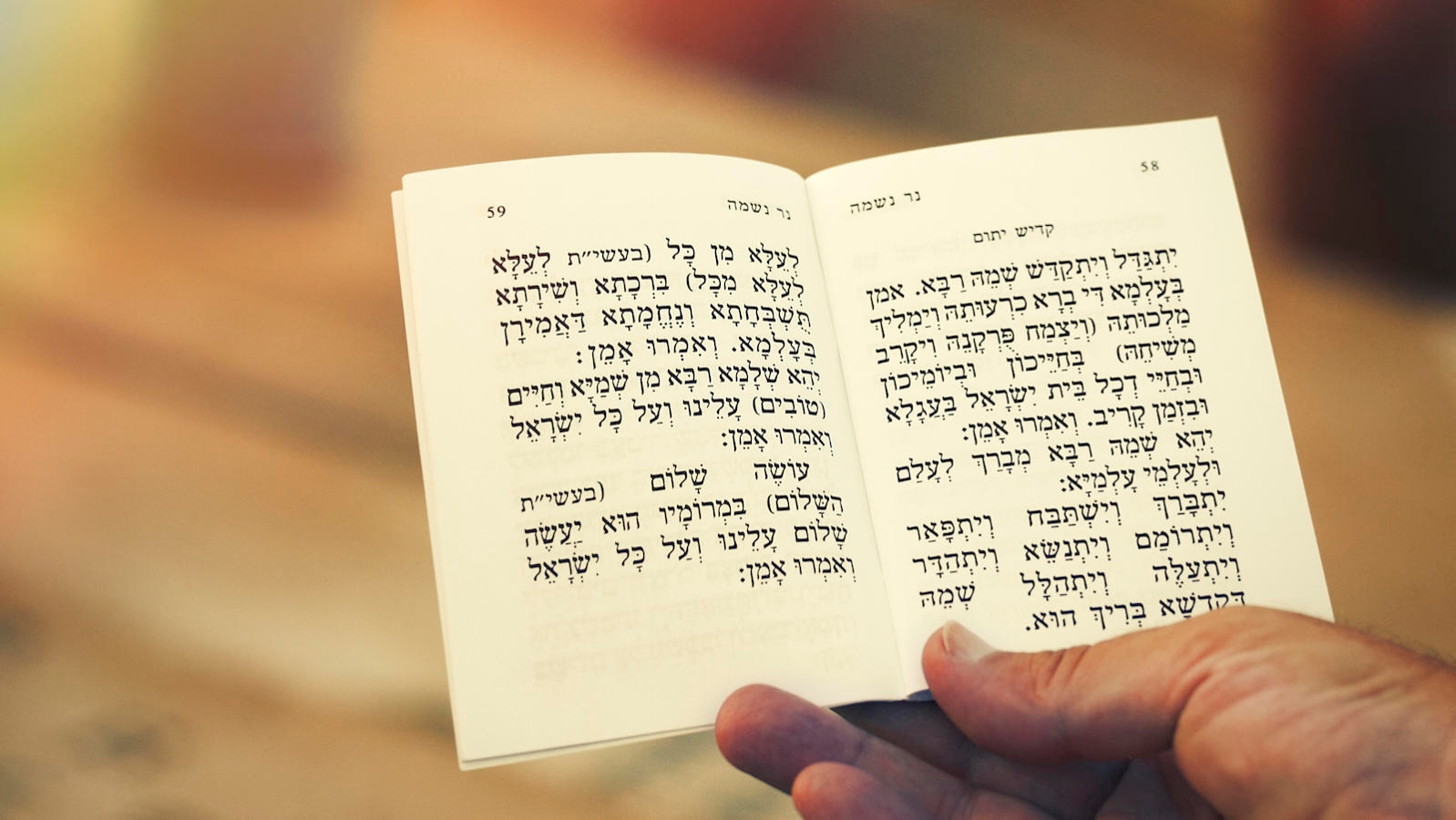The Mourner’s Kaddish is perhaps the most radical — and misunderstood — prayer in the . The Kaddish is often viewed as offering praise to God, despite a person’s own suffering and loss. When researching the origins of the prayer, including reading medieval commentaries on it, I discovered that this approach is simply inaccurate. And over generations, this prevailing interpretation has turned off so many to the experience of the Kaddish. I want to offer an alternative explanation.
There are two main phrases that are key to understanding the Kaddish. By looking at them closely, we can transform our understanding of the prayer — from a testimony to faith in a God whose actions cause us to suffer for reasons we don’t understand to a prompt that reminds God of the brokenness of the world.
The first key phrase is the opening line: Yitgadal Ve-Yitkadash Shemei Rabbah. This is often translated into English as “Magnified and sanctified be His great name.” It is understandable how this could be seen as a prayer praising God. But the prayer is not a praise; it is a request. The worshiper is asking for God to be magnified and to be sanctified, implying — correctly — that God is not magnified and sanctified right now.
How could it be that God is not magnified and sanctified now? It is clear from the biblical context of this line in Ezekiel 38:23 that God will only be made great and holy at the end of days, when all nations recognize God as the supreme moral force in the world. Shockingly, the Kaddish also claims that God is not king, by stating: “let God’s kingdom rule.” (God is not fully king until everyone recognizes God.)

Help us keep Jewish knowledge accessible to millions of people around the world.
Your donation to My Jewish Learning fuels endless journeys of Jewish discovery. With your help, My Jewish Learning can continue to provide nonstop opportunities for learning, connection and growth.
In a world of death and mourning, it is clear that God is not fully holy, great or even king. This prayer — put in the mouth of the mourner — begs God to speed the day when God is, in fact, great and holy. But it acknowledges that we aren’t there yet.
The other line in Kaddish that is critical is the congregational response: Y’hei Sh’mei Raba M’varach L’alam Ul’almei Almaya. The translation: “May His great Name be blessed forever and for all eternity.” A very strange feature of the Kaddish is the lack of God’s name. Almost all other prayers mention God’s name — so why is it missing from this particular prayer? Why is God absent, but God’s name (“his name”) is mentioned multiple times?
The answer has everything to do with the radical theology of the Kaddish. This is a prayer that is acting out the reality we live in: a world in which God’s name is diminished. And while we want God’s name to be great and blessed, and ask for that in this prayer, we still live in a world where that hasn’t happened fully. Exhibit A? The death we are mourning, the death that brought us to this prayer.
This is illustrated in one of the oldest stories about the Kaddish, in the Babylonian , which is the source of this line:
Rabbi Yose said: One time I was walking on the path, and I entered a ruin from one of the ruins of Jerusalem in order to pray. Elijah of blessed memory came and watched the doorway until I finished my prayer …. he said to me … :
“Whenever the Israelites go into the synagogues and schoolhouses and respond: ‘May His great name be blessed,’ God shakes His head and says: “Happy is the king who is thus praised in His house! Woe to the father who had to banish his children, and woe to the children who had to be banished from the table of their father!” (Brachot 3a)
This source offers another perspective on the context of the congregational response. On the one hand, when the phrase is recited by Israel in the synagogues and study houses, God is filled with happiness. But immediately following this statement of joy, God goes on to say: Woe is Me and woe is Israel. In other words, the source reflects the complex emotions that are embedded in the recitation of the line. This is a line that was associated with the presence of God; reciting it meant that God’s name — the embodiment of God’s immanence — was at hand. Yet it is recited not in the world of the Temple and the High Priest, but rather in a world in which Jerusalem is in ruins.
In other words, the line has morphed from a reaction to God’s presence to a painful reminder of God’s absence. God is no longer available in this world in the way God once was.
Significantly, the sufferer in this text is not limited to the “children” — that is, Israel. The suffering parties include also God. Both experience woe. By reciting this line, then, the mourner invites God into the emotional experience of remembering better times and of grief for the state of the world.
The Kaddish is not a stoic praise of an unfeeling God who for reasons we can’t know let our loved ones die without remorse. Rather, it is a plea for a better world in which God is more fully holy, and the presence of God more completely experienced.
We are not living in that world, and the Kaddish knows it; but it offers us a path to imagine a world beyond our current one. And critically, God is in league with us in begging for that world to come soon.
This essay was adapted for My Jewish Learning from an essay in the book “Kaddish” (New Paradigm Matrix, 2017)
Sign up for a Journey Through Grief & Mourning: Whether you have lost a loved one recently or just want to learn the basics of Jewish mourning rituals, this 8-part email series will guide you through everything you need to know and help you feel supported and comforted at a difficult time.
Looking for a way to say Mourner’s Kaddish in a minyan? My Jewish Learning’s daily online minyan gives mourners and others an opportunity to say Kaddish in community and learn from leading rabbis.



